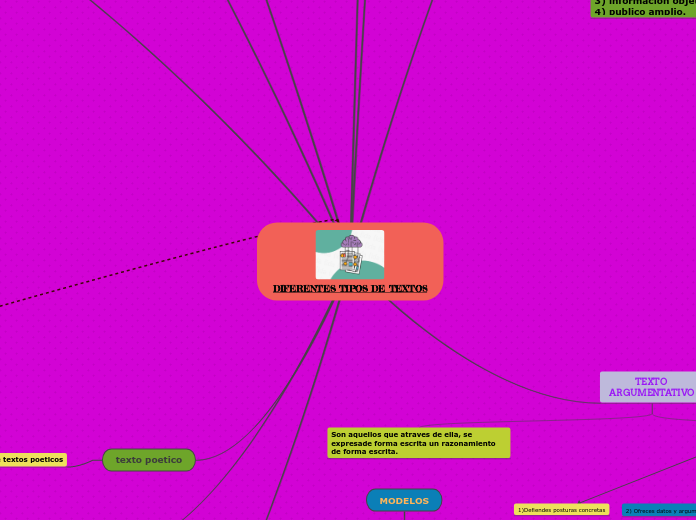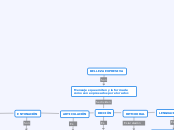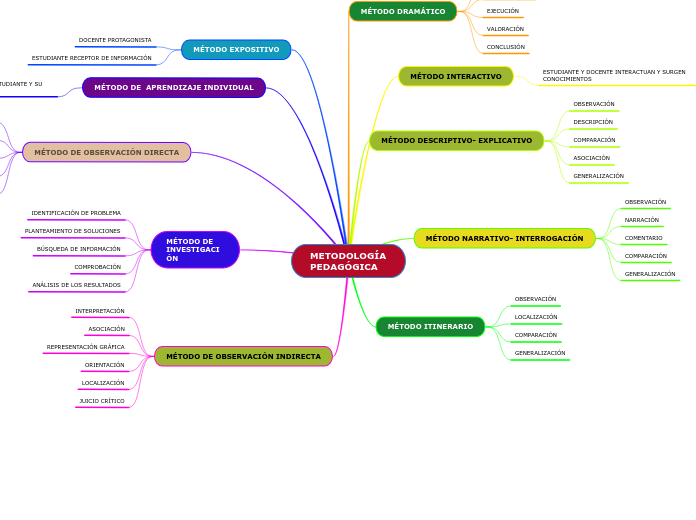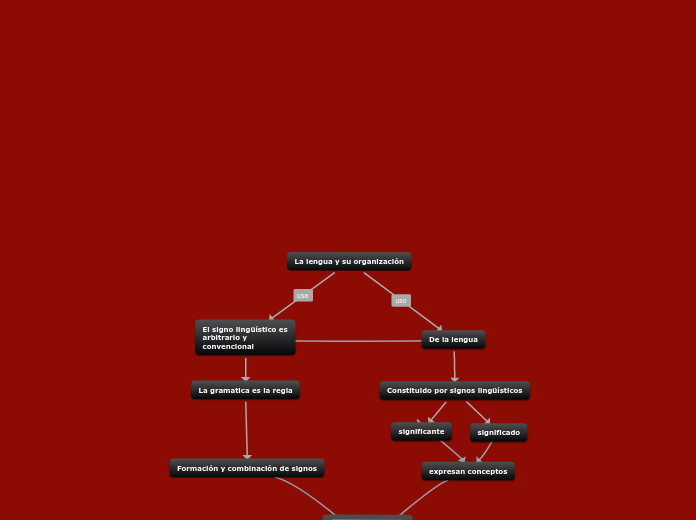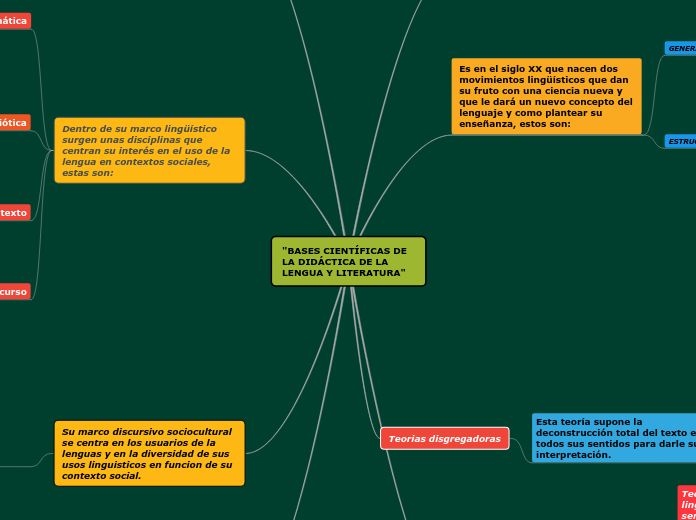American English
Verb differences
What are the particularities regarding the use of verbs in American English (AmE)? Type them in. Take into account the use of tenses, verb morphology, auxiliaries, transitivity, etc.
Example: AmE occasionally uses simple past instead of past perfect to talk about an event in the recent past: I just arrived from work.
MODELOS
TEXTO CIENTIFICO
British English
Verb differences
What are the particularities regarding the use of verbs in Standard British English (BrE)? Type them in. Take into account the use of tenses, verb morphology, auxiliaries, transitivity, etc.
Example: BrE uses present perfect along with the words 'already', 'just' and 'yet' to talk about an event in the recent past: We have just arrived home.
tipos de textos
Manografia
Informes
Articulos
Particularity
Noun differences
Type in the particularities regarding the use of nouns in American English (AmE).
For instance, collective nouns almost always take singular verb forms: The team was awarded first prize in the competition.
Son los que de una o otra manera informan o demuestran avances producido por las investigaciones, tambien manejan lenguaje claro con sintaxis permanente.
Topic flotante
DIFERENTES TIPOS DE TEXTOS
Writing numbers
How is writing numbers different in American English from Standard British English? Type in some situations.
Example: AmE speakers will drop the 'and' before the tens and units, while the BrE speakers will always write numbers of such with 'and': 'two thousand fourteen' (AmE) or 'two thousand and fourteen' (BrE).
Es aquel que apela a diversos recursos estilísticos para transmitir emociones y sentimientos, respetando los criterios de estilo del autor.
texto poetico
Tipos de textos poeticos
La Narrativa
Type in some of these situations.
Example: for the house numbers or bus numbers (or any short numbers of such), for example, 583, American speakers will say ' five eighty-three', while British people will say ' five eight three'.
La Epica
La lira
La dramatica
PALABRAS FONICAS
Son aquellas palabras que juegan con sonidos y musicalidad, alteracion y repeticion de sonidos en varias palabras de una misma frase.
Quien tiene un amigo, tiene un tesoro.
TIPOS DE TEXTOS FONICOS
El palindromo
Es una palabra o frase que se lee igual en un sentido que en otro.
La onomatopeya
Es la representación de un sonido natural o de otro acto acústico no discursivo
El calambur
Consiste en modificar el significado de una palabra o frase agrupando de distinta forma sus sílabas
La paranomasia
Es un recurso fónico que consiste en emplear parónimos. Fue muy utilizado por los conceptistas en sus burlas o sátiras.
La aliteracion
Es la repetición del mismo sonido al comienzo de una serie de palabra
¡ Guau, Guau!
PALABRAS GRAMATICALES
son expresiones que se desvían del uso común de la lengua con una finalidad estética.
TIPOS DE TEXTOS GRAMATICALES
Verbos.
Sustantivos.
Adjetivos.
Pronombres.
Determinantes.
Adverbios.
Preposiciones.
Conjunciones
PALABRAS SEMANTICAS
Estudia el significado que expresamos mediante el lenguaje natural.
TIPOS DE TEXTOS DE LA SEMANTICA
Hiperónimos.
son palabras cuyo significado incluyen el rasgo genérico, general o común de otras palabras más concretas
Antonimia
son palabras que tienen significados opuestos, inversos o contrarios entre sí.
Sinonimia
son expresiones o palabras que tienen un significado similar o idéntico entre sí
Homonimia.
se establece entre dos o más palabras que se escriben o pronuncian igual, pero tienen distintos significados
Polisemia
consiste en que una misma palabra tiene varios significados.
Additional info
Monosemia
son las que tienen un único significado, es decir, su sentido es uno solo (el prefijo mono- significa uno en cualquier contexto. Por ejemplo: danza, ajo, fotografía.
TEXTO ARGUMENTATIVO
CARACTERISTICA
3) Tambien tiene en cuenta argumentos contrarios o la postura que difiende y que lo discute.
2) Ofreces datos y argumentos para defender su postura
1)Defiendes posturas concretas
Son aquellos que atraves de ella, se expresade forma escrita un razonamiento de forma escrita.
What particularity in pronunciation have you spotted?
Think of the sounds /o/ and /ae/, pronunciation of letter 'T', unaccented syllables, etc.
Example: sound /o/ is pronounced with rounded lips only in BrE.
TEXTOS EXPOSITIVOS
Hace referencia al desarrollo de un tema, es de modalidad textual. Su finalidad es informar temas de interes general para un publico.
What is the difference in date format?
The date is formatted differently in American English and Standard British English.
Type in the two formats, taking into account that it has to include the day (DD), the month (MM) and the year (YYYY).
DESCRIPTIVOS
Mi hija menor se llama Marlen Victoria ella es de estatura muy pequeña, cabello liso mono, tes blanca, ojos cafe claros, sus manos son pequeñas, tiene dos años y es muy inteligente.
tipos de textos descriptivos
Use of double consonants
Type in the words that are written with double consonants only in one version of the language.
Example: 'traveler' (AmE) and 'traveller' (BrE).
Novelas
Cuentos
Guias de viajes
Es el cual, atraves de las palabras, describimos un hecho, cosa, persona, lugar o situacion en la que se define algun tema.
Words with different endings
Type in the words which have one ending in American English and another one in Standard British English.
Example: AmE has changed words ending in 're' in 'er': 'theater' and 'theatre'.
TEXTO NARRATIVOS
Son aquellos que cuentan los acontecimientos, que ocurren en un texto ya sea real o ficiticios.
MODELOS O TIPO DE TEXTOS NARRATIVOS
The same word with different meanings
Type in examples of words that have different meanings in American and Standard British English.
Example: 'bill' can both refer to paper money (AmE) and an invoice (BrE).
NOTICIAS
FABULAS
CUENTOS
NOVELA
EJEMPLOS
Y salimos bailar toda la noche, cuando de repente. Empezo a llover y bailamos en la lluvia.
Different words with the same meaning
There are many objects that are described by different words in American and British English.
Example: 'Cookie' (AmE) and 'biscuit' (BrE) both refer to the same sweet baked food.
Type in some of these words.
